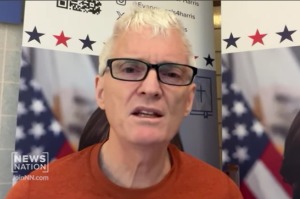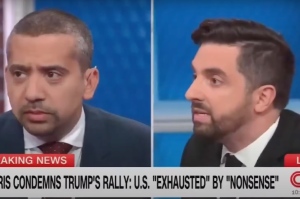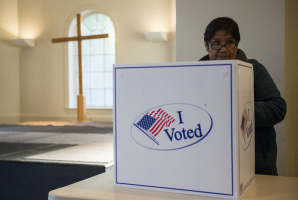Would Eliminating State Dept. Office of Religion and Global Affairs Be a Big Deal?
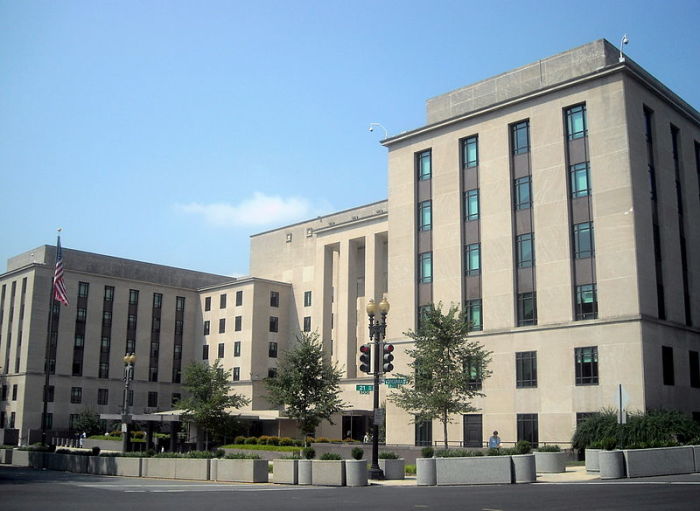
Reports have speculated over the last few months on whether the Trump administration will scrap the State Department Office of Religion and Global Affairs and eliminate special envoy and representative positions on anti-semitism and Muslim outreach.
After President Donald Trump released his first budget proposal earlier this year, a Bloomberg report surfaced indicating that as the administration looked for ways to cut the State Department budget, Trump and administration officials were weighing the possibility of cutting key envoy positions, including ones that deal with anti-semitism and outreach to Muslim communities.
When it was announced last month that Secretary of State Rex Tillerson declined the Office of Religion and Global Affairs' request for him to host a traditional Ramadan reception, CNN reported that the office, which is responsible for religious outreach, is "widely expected to be scrapped" as part of the restructuring of the State Department.
To some, scrapping the office might seem like a backstep in the the Trump administration's efforts to protect religious freedom at home and abroad.
But would eliminating the office, which was created in 2013 by the Obama administration, and steep cuts to the State Department's budget (29 percent) really have a negative impact on the U.S. government's advocacy for religious freedom and religious outreach?
"All of these offices existed in the previous eight years and I don't know a single evangelical leader who would say that the Obama administration prioritized international and domestic religious liberty in a way that they should, despite the fact that all these offices existed," prominent religious freedom advocate and author Johnnie Moore told The Christian Post.
Moore, who is a member of Trump's evangelical advisory board and is believed to be in consideration for the ambassador-at-large for international religious freedom position, told CP that it would be a mistake to conclude that the Trump administration's efforts to limit government excess can't "coexist" with its ability to promote and protect religious freedom.
"One of the problems with the United States government and with governments around the world that are flush with cash is that we end up with lots and lots of offices with lots and lots of employees and it just grows and it grows and it grows," Moore, who is also a CP advisor, explained. "The federal government has almost 3 million employees. So I think it is a very healthy thing to be taking a good look at all these departments, including the State Department.
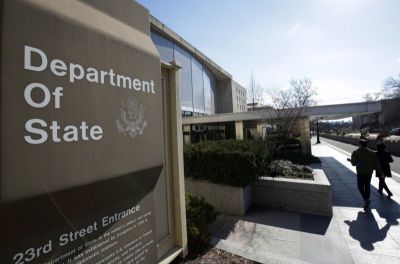
"It is in the purview of every administration to organize themselves and this administration is clearly taking a very good look at every department and every program and asking themselves if these departments or programs are meeting [expectations] or do they just exist. I think they prioritize the stewardship of resources and the effective use of taxpayer dollars. Just because something has been, doesn't mean that it should exist."
CP reached out to Thomas Farr, a prominent religious freedom scholar who served as the director of the State Department Office of International Religious Freedom and spent 21 years in the U.S. Foreign Service. Farr pointed to a list of recommendations focusing on the topic of international religious freedom that he and the Institute for Global Engagement's Dennis Hoover produced and sent to the Trump administration earlier this year.
The document calls on the Trump administration to "retain" the Office of Religion and Global Affairs but also calls on the administration to clarify the office's functions.
"Appoint as head of this office an individual with broad foreign policy knowledge and contacts with international religious actors," the recommendation reads. "Give the office head autonomy and authority under the supervision of the IRF Ambassador."
While Moore is unsure of what the Office of Religion and Global Affairs has really accomplished since 2013, Family Research Council President and fellow religious freedom advocate Tony Perkins told CP that the office has actually had a negative impact on religious liberty.
"Unfortunately, the impact seems quite negative," Perkins asserted in an email statement. "I'm aware that the office is used to pressure religious groups around the world to violate their tenets by approving of homosexual conduct and LGBT lifestyles. This is unacceptable."
Galen Carey, who serves as the vice president of government relations for the National Association of Evangelicals, told CP in an email that the Office of Religion and Global Affairs has had positive impact in some areas.
"One example of a constructive initiative was the 2014 religious leaders peacemaking trip to Central African Republic involving NAE President Leith Anderson, Cardinal [Theodore] McCarrick and Imam [Mohamed] Magid," Carey wrote. "The three leaders met with their counterparts in CAR and contributed to a significant reduction in religious violence."
When asked what impact cutting the office might have on the State Department's overall religious outreach, Carey, like Moore and Perkins, believes that "bureaucratic structure" is not what is important. Carey explained that what is important is having "adequate numbers of trained diplomats and prioritization by top State Department officials of diplomatic engagement with religious communities where they are a key to peaceful international relations and conflict resolution."
"What is important is that both religious freedom and the intelligent engagement with religious communities be adequately staffed and managed as a State Department priority," he explained. "The ambassador-at-large for international religious freedom is supposed to have direct access to the secretary of state, but recent administrations have downgraded the position, burying it within the bureaucracy."
Although Moore said he has no direct knowledge of what the Trump administration plans to do with the office or its envoy and representative positions, he stated that it is "smart" of Tillerson and others to evaluate what the office was designed to do and what it has accomplished. He suggested that one possible solution would be to consolidate the Office of Religion and Global Affairs within the Office of International Religious Freedom.
"What were its strengths and what were its weaknesses? Can we build on its strengths and limit its weaknesses? Or maybe, it shouldn't exist at all because we have a Congressionally mandated office that deals with similar issues and maybe it would be smarter to secure all of that within the Congressionally mandated portion of the department. I don't know," Moore said. "I think it would be smart to ask, 'What is the Office of Religion and Global Affairs actually doing?'"
Moore referenced an op-ed written by the office's former director, Shaun Casey, in which he claimed Trump has "no idea" what he is doing when it comes to religious affairs and argued that "Trump scrubbed or lost almost all the expertise in the U.S. government to assess religious landscapes."
"Clearly [the office] was being run by an ideologue who couldn't keep his mouth shut in opposition to this administration since Georgetown [University] hired him, even when the administration does very positive, objectively speaking, things," Moore declared.
Perkins believes that the office in question should be "nixed."
"If we are looking at what to cut and what to keep, the Office of Religion and Global Affairs should be nixed, and the Office of International Religious Freedom should be kept," Perkins stated. "But also, you need a prioritization of the issue within our foreign affairs more broadly (including but not limited to the State Department) and buy-in from those at the top. Without that, even an office and a religious freedom ambassador position won't do much."
Considering that a bipartisan group of 167 members of Congress have called on Trump to retain the position of special envoy to monitor and combat anti-semitism, Tillerson argued during a House hearing on Wednesday that such a role might actually be worsening anti-semitism advocacy in the State Department.
"One of the things that we are considering — and we understand why [special envoys] were created and the good intentions behind why they were created — but one of the things we want to understand is by doing that, did we weaken our attention to those issues?" Tillerson asked. "Because the expertise in a lot of these areas lies within the bureaus, and now we've stripped it out of the bureaus."
"One of the questions I've asked is, 'If we're really going to affect these areas, these special areas, don't we have to affect it through the delivery on mission at every level at every country?'" Tillerson continued. "And by having a special person, an envoy out here, one of my experiences is, mission then says, 'Oh, we've got somebody else that does that,' and then they stop doing it. And so it was not the intent — I know the intent was to bring more attention to it — but I'm back to how do we deliver on mission? How does this actually get done?"
















